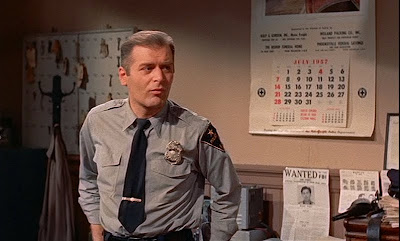So you finally got around to reading the piece in Wired about college students and writing?
If you mean Clive Thompson’s On the New Literacy, I read it some time ago.
So how come haven’t you written anything about it?
Well, I’ve been really busy, mostly grading student essays. That takes a lot of time. I've been putting in long hours at the Continental Paper Grading Co.
So you’ve haven’t been able to write something about students’ writing because you’ve been grading your students’ writing. Pretty ironic.
Whatever.
So what do you think about the claim that “online media are pushing literacy into cool directions”? Thompson quotes Andrea Lunsford, the director of the Stanford Study of Writing, who says that “we’re in the midst of a literacy revolution the likes of which we haven’t seen since Greek civilization.”
I, uh, don’t see it.
Because of the essays you’ve been grading?
Not really. More because of overall impressions developed over several years.
Can you elaborate?
I just haven’t see any remarkable development in students’ writing ability. To the contrary: I see much evidence of a long, sorry decline. It’s not unusual to read entire essays with no punctuation beyond the period. It’s not unusual to find confusions about spelling that not long ago were pretty much beyond my imagining: and for an, pros for prose.
What more concerns me is an overall decline in the ability to develop a coherent line of thought in an essay. What I find most urgently missing in student writing is skill in developing an overarching argument, within an essay and even within paragraphs. Much of the blame here goes not to the Internets but to the rigid list-oriented model of essay-writing that students are required to follow in their earlier schooling: “There are three foods that I like. First. Next. Last, but not least. In conclusion, there are three foods that I like.” By the time students get to college, the possibility of the essay as an adventure in thinking, a trying out of ideas, is largely gone. And without the reliable “three points,” the work of writing an essay becomes analogous to driving without a steering wheel.
But you have to admit, students are writing more than ever before.
Here too, I don't see it. Here’s what Thompson says, expanding on Lunsford’s claim that today’s college students do more writing than any previous generation:
Before the Internet came along, most Americans never wrote anything, ever, that wasn’t a school assignment. Unless they got a job that required producing text (like in law, advertising, or media), they’d leave school and virtually never construct a paragraph again.
This generalization about the past is laughable, as anyone aware of the diaries, journals, and letters of earlier generations can attest. But the claim about today’s students can be plausible only if we count as
writing any words made as marks by hand. Here are three of my recent texting efforts:
Yowza!
Idyllic!
Check yr email
And a recent shopping list:
Blue Silk
Cheerios
sun-dried tomatoes
fruit
These are examples of written language, but they’re hardly examples of the sustained thought that more typically defines that which we call
writing.
What were you doing shopping for silk in the supermarket?No, Silk, with a capital
S, soymilk. Good stuff.
My mistake. I’m guessing that you’re also not persuaded by the claim that students are “remarkably adept at what rhetoricians call kairos
— assessing their audience and adapting their tone and technique to best get their point across.”No, I’m not persuaded. Or yes, I’m not — I’ve never figured out how that kind of question works. I don’t doubt that students texting friends are adept at
kairos (as are debt collectors, extortionists, and political operatives, at least sometimes). But I’m not convinced that a grasp of
kairos in socializing with peers transfers readily to other contexts. Consider, for instance, the lack of
kairos evident in many student e-mails to professors, beginning, often, with the infamous “Hey,” or with no greeting at all, ending with no signature, and sent from unseemly addresses. Or consider the lack of interest many students show in following directions for written work. A strong sense of
kairos would make unstapled pages, misspelled authors’ names, and “In the book it says” things of the past. But they’re all still with us, or at least with me, despite cautions and reminders galore.
Well, you finally got your two cents in. Do you think your readers know that you picked up the idea of the self-interview from Thomas Merton’s journals?I’m sure of it.
Related post
How to e-mail a professorWriting, technology, and teenagers





